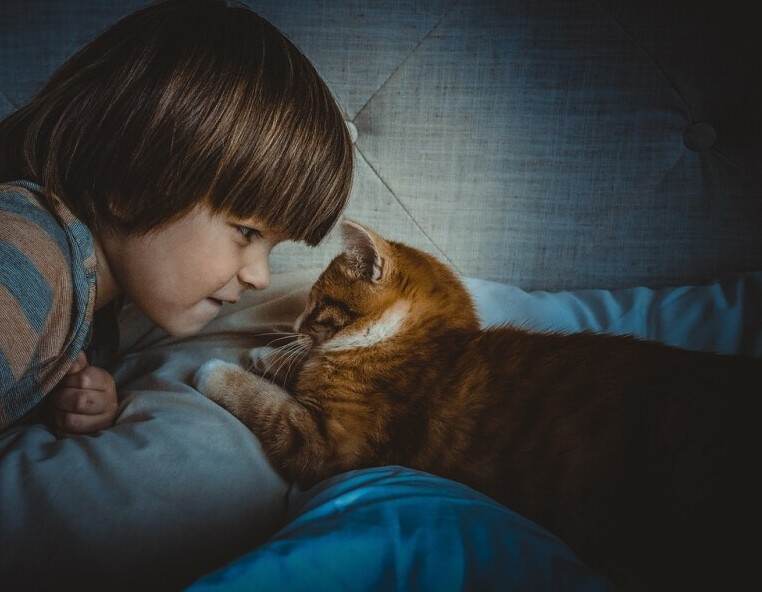
Opening your home to a feline friend can be a thrilling experience. It’s essential to be fully prepared for the realities of cat companionship. Adopting a cat requires a long-term commitment. Having a clear understanding of what to expect can help ensure a successful and happy life together for you and your new furry companion.
Before You Welcome Your New Cat:
• Self-reflection is crucial before deciding to adopt a cat. Consider your lifestyle and living situation to determine if you are ready to take on the responsibilities of cat ownership. Are you prepared to handle the daily tasks of feeding, cleaning the litter box, and providing playtime? Additionally, it’s essential to evaluate if your living space is suitable for a cat. Do you have enough room for the cat to climb and hide? Finally, you should consider the long-term commitment of owning a cat and ensure you are ready for the responsibility.
• It’s essential to research different cat breeds before adopting one. Each breed has its unique personality and needs, so choosing one that suits your lifestyle is necessary. For example, a laid-back Persian might be a better fit for you if you live in a quiet apartment. On the other hand, if you’re part of an active family with children, an energetic Siamese could be a better match. Finding a breed that aligns with your lifestyle and preferences can ensure a happy and harmonious life with your feline friend.
Preparing Your Home:
• It’s essential to cat-proof your home to ensure your cat’s safety. Since cats are naturally curious, they tend to explore their surroundings, so taking necessary precautions to prevent accidents and injuries is crucial. Make sure to secure any electrical cords, poisonous plants, and any loose items that your cat could chew on. Providing a safe environment for your cat can ensure their well-being and overall happiness.
• It’s essential to Gather all the necessary supplies before your feline friend arrives. This includes a litter box with appropriate litter, food and water bowls, scratching posts, comfortable bedding, toys, and a cat carrier for future vet visits. Having all the necessary supplies will help make the transition smoother for you and your new cat.
• To make your new cat feel safe and comfortable in its new home, you should designate a quiet room for it to settle into. This space can be a bathroom or spare bedroom equipped with a litter box, food and water, a bed, and toys. Having a familiar space will help your cat adjust to its new surroundings at its own pace and provide a sense of security.
Bringing Your Cat Home:
• During the first few days of bringing your cat home, it’s essential to be patient and understanding as your pet adjusts to their new environment. Your cat may initially be shy, preferring to hide in their designated room or under furniture. Allow them to explore their new space at their own pace and avoid forcing interaction. It’s crucial to give your cat enough time to adjust to their new surroundings and avoid overwhelming them with too much attention.
•Cats thrive on routine, so it’s important to establish consistent times for feeding, playtime, and litter box cleaning. This will help them feel secure and comfortable in their surroundings and prevent behavioral issues.
Building a Bond with Your Cat:
• Respecting your cat’s boundaries is crucial for building a solid bond. Not all cats enjoy attention immediately, so it’s best to let your cat initiate interaction. Offer head scratches or playtime only when they seem receptive. Forcing unwanted affection can hinder the bonding process. Therefore, it’s essential to respect your cat’s boundaries and allow them to come to you when they’re ready.
• Positive reinforcement is an effective way to encourage your cat’s good behavior. You can use praise, treats, or petting to reward your cat for their positive actions. This positive reinforcement will help to strengthen your bond with your cat and encourage them to continue their desirable behaviors. Rewarding your cat for good behavior is essential to establish a positive relationship and reinforce good habits.
• Having patience and understanding is crucial when building a bond with your cat. Every cat has a unique personality, so it’s essential to be patient with their quirks and understand that building a solid bond takes time and consistent positive interaction. It takes time to develop a strong bond with your cat, so it’s essential to be patient and understanding as you get to know each other.
Addressing Potential Challenges:
• If you’re experiencing litter box issues with your cat, it’s essential to take action. It’s not uncommon for accidents to happen, particularly during the initial adjustment period. However, observing your cat’s behavior is essential, ensuring their litter box is clean and accessible and consulting a veterinarian if the problem persists. Litter box problems can indicate underlying health issues, so addressing them promptly is essential.
•Cats have a natural tendency to scratch things. It’s essential to provide them with multiple scratching posts in various textures and locations to prevent them from scratching your furniture. By giving your cat appropriate outlets for their natural behavior, you can help keep them mentally and physically stimulated while preventing damage to your furniture.
• If you encounter any specific behavioral challenges with your pet, it is advisable to consult a professional animal trainer or behaviorist. They can help you identify the root cause of the behavior and develop favorable strategies for modification. Seeking professional help is crucial if you have particular behavioral issues. It can address the problem and prevent it from becoming more significant.
The Joys of Cat Ownership:
Adopting a cat can be a very fulfilling experience as it brings love, laughter, and companionship into your life. You can witness their playful behavior, enjoy their soothing purrs, and develop a unique bond with your feline companion. It’s essential to remember that each cat has a distinct personality and set of needs, and it takes time and effort to establish a strong connection with them.
Additional Tips:
• Consider adopting an adult cat if you prefer a less energetic companion. Adult cats are often already trained and may be better for a quieter home.
• If you already have pets, introduce them slowly and under supervision. Proper introductions are crucial to prevent territorial issues and ensure a smooth transition for all pets involved. If you already have pets, introduce them slowly and under supervision. Proper introductions are crucial to prevent territorial issues and ensure a smooth transition for all pets involved.
• Schedule regular veterinary checkups to ensure your cat’s health and well-being. Regular checkups are crucial for maintaining your cat’s health and catching potential health issues early.
• Enjoy the journey! Remember, every cat is an individual with unique needs and personalities. Embrace their quirks, shower them with love, and prepare for a lifetime of purrfect memories. Owning a cat is an adventure, and it’s important to enjoy every moment of it.
